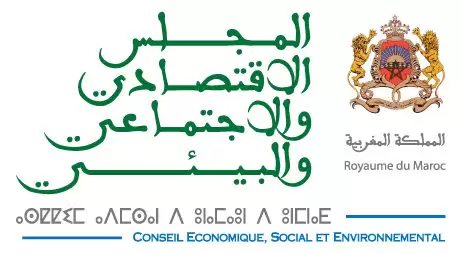
ASA-C5-032019-47-6954-fr
This report indicates that the COVID-induced global health crisis has had broad impacts that extend beyond social and economic realms to impact the innovation ecosystem worldwide. The pandemic, the report goes on, has also tested the resilience of ordinary citizens and the robustness of healthcare systems and industrial market across the world.
Nationwide, the crisis has presented potential benefits for Morocco to enhance its industrial capacity along a technological innovation trajectory.
Further efforts are still needed for our country to reach this goal. It is of vital importance for Morocco’s economy, built around raw materials or low-technological content products, to generate greater national added value and skilled jobs.
The Council finds that a country’s capacity for innovation today requires appropriate ecosystems and collective processes in which numerous public and private actors, both nationwide and regionally, along with universities and businesses, must collaborate and play their full part.
It is therefore recommended, on a strategic point of view, that an institutional, legal and financial ecosystem be developed to support innovation and significantly increase its impact.
This report was adopted by majority at the General Assembly’s 111th session on 30 June 2020.
It indicates that the COVID-induced global health crisis has had broad impacts that extend beyond social and economic realms to impact the innovation ecosystem worldwide. The pandemic, the report goes on, has also tested the resilience of ordinary citizens and the robustness of healthcare systems and industrial market across the world.
Nationwide, the crisis has presented potential benefits for Morocco to enhance its industrial capacity along a technological innovation trajectory.
Further efforts are still needed for our country to reach this goal. It is of vital importance for Morocco’s economy, built around raw materials or low-technological content products, to generate greater national added value and skilled jobs.
Recommendations:
The Council finds that a country’s capacity for innovation today requires appropriate ecosystems and collective processes in which numerous public and private actors, both nationwide and regionally, along with universities and businesses, must collaborate and play their full part.
It is therefore recommended, on a strategic point of view, that an institutional, legal and financial ecosystem be developed to support innovation and significantly increase its impact. The following recommendations can be considered:
- Set up a strategic governance body responsible for implementing the National Innovation Strategy and allocating dedicated public funds, supplemented by those provided by national or international public or private funding bodies.
- Include a research & development and innovation component in each sectoral strategy.
- Promote teaching-learning that involves the use of innovation and related knowledge and content.
The following operational steps are required:
- Create favorable conditions for Moroccan startups to grow into viable and profitable businesses: This can be achieved through adopting a legal and regulatory framework that takes due account of the specific characteristics of this type of business; using public procurement as a lever for development; introducing a tax incentive framework in the form of a tax credit for research and innovation; and significantly increasing the funds earmarked for startups and innovative businesses.
- Thoroughly rethink the relationship between universities and companies, to help promote a win-win approach based on simplified and effective operating methods, particularly by ensuring that appropriate provisions are made for intellectual property, that a procedure is devised and introduced to facilitate staff mobility between universities and companies and, lastly, that companies wishing to do so are authorized to finance doctoral grants.
- Raise the standard of public universities and ensure full autonomy for them to deliver research and innovation projects. This requires simplifying the disbursement procedures for R&D to increase the agility that research teams need. Also required is removing the limitations associated with age, nationality and other factors preventing the recruitment of accomplished professionals and researchers.
